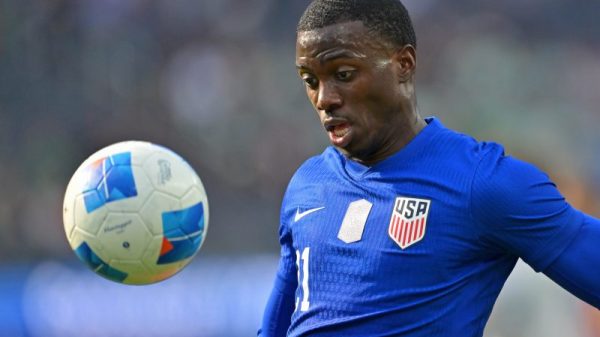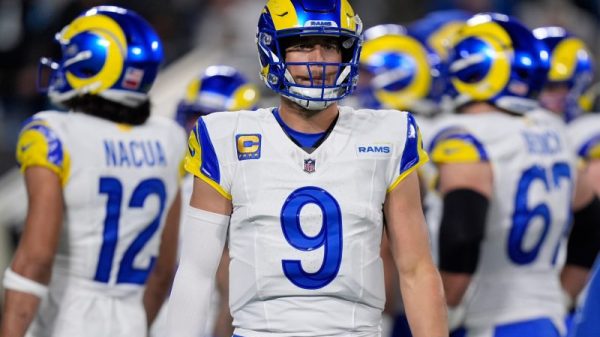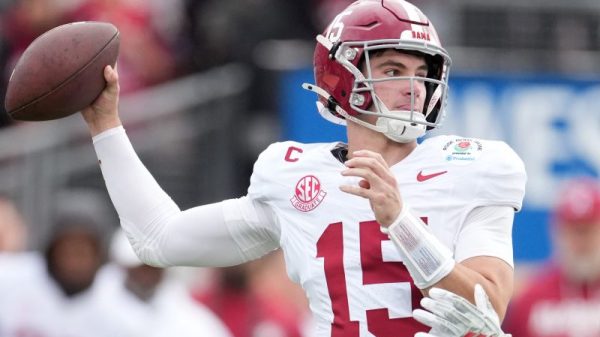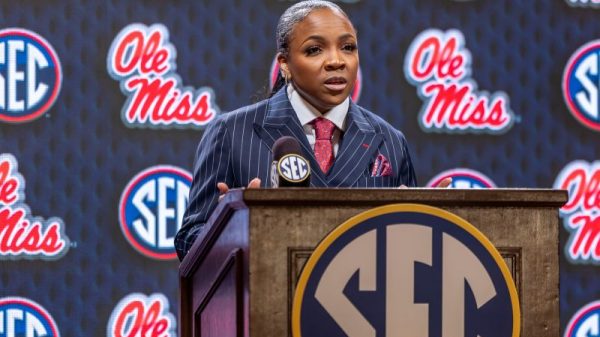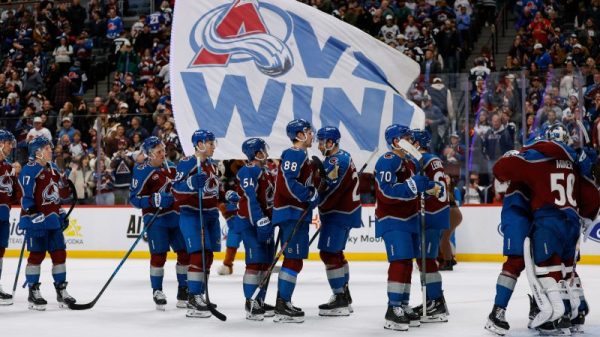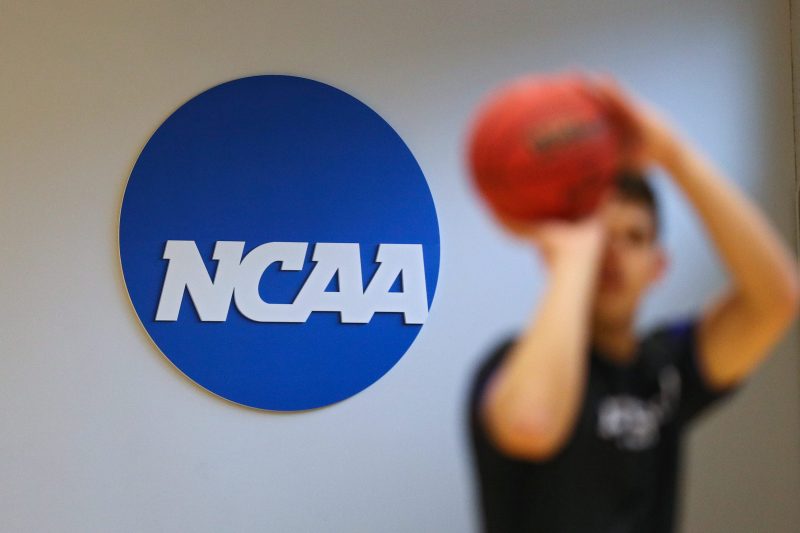CHARLESTON, W.Va. (AP) — The NCAA and a coalition of states suing the organization asked a federal court Friday to extend a small window for multiple-transfer athletes to compete through at least the winter and spring semesters.
The motion seeks to extend the 14-day temporary restraining order barring the NCAA from enforcing a rule for those athletes who transfer multiple times.
On Wednesday, U.S. District Judge John Preston Bailey in West Virginia issued a temporary restraining order against the NCAA. The ruling, part of a lawsuit by a coalition of seven states, said athletes who previously were denied the chance to play immediately after transferring a second time can compete in games for 14 days.
The NCAA then circulated a document to its member schools clarifying that the redshirt rule for athletes would still apply if the court’s decision is reversed: Basketball players who compete during the two-week window would be using up a season of eligibility.
Now, the two sides apparently are coming together to address the athletes’ desires.
“Let the kids play,” West Virginia Attorney General Patrick Morrisey said in a news release.
The motion said that following consultation among the parties, the court is being requested to convert the retraining order into a preliminary injunction that will remain in place until the case is decided.
“The NCAA shall take no action to retaliate” against any participating athlete or their school while the preliminary injunction is in effect, based on the athlete’s reliance on the injunction’s terms, the motion said.
NCAA spokeswoman Saquandra Heath said in a statement that, as a result of the joint motion, it “will not enforce the year in residency requirement for multiple-time transfers and will begin notifying member schools.”
Heath said the proposal “is the best outcome for multiple-time transfer student-athletes wishing to compete immediately. This action provides clarity for student-athletes and member schools for the remainder of the academic year — any multiple-time transfer student-athlete who competes this season will be subject to the same eligibility and use of a season of competition rules as all other student-athletes.”
The motion asks that a hearing on the restraining order set for Dec. 27 be canceled and that the case be set for trial no sooner than the last day of competition in the winter and spring sports seasons.
The lawsuit, which alleges the NCAA transfer rule’s waiver process violates federal antitrust law, could have a profound impact on college sports if successful. In court documents, the NCAA has said the plaintiffs “seek to remake collegiate athletics and replace it with a system of perpetual and unchecked free agency.”
Earlier Friday, West Virginia interim basketball coach Josh Eilert said multi-year transfers RaeQuan Battle and Noah Farrakhan would dress and be available to play in Saturday’s game against UMass in Springfield, Massachusetts.
“We have had many conversations with a variety of parties since Wednesday’s court ruling in Wheeling,” Eilert said in a statement. “But most importantly, we have had extensive discussions with RaeQuan, Noah and their families. They have expressed their desire to compete with their fellow teammates and represent West Virginia University on the court. This was their decision to compete. As I’ve said, we will always fully support them and certainly look forward to having them on our active roster.”
NCAA rules allow underclassmen to transfer once without having to sit out a year. But an additional transfer as an undergraduate generally requires the NCAA to grant a waiver allowing the athlete to compete immediately. Without it, the athlete would have to sit out for a year at the new school.
Last January, the NCAA implemented stricter guidelines for granting those waivers on a case-by-case basis.
Morrisey said the joint motion, if allowed, would be “a big win in the fight for student-athletes like RaeQuan Battle of West Virginia University to play in the sport they love. This is all about the student-athletes who were sidelined with the NCAA’s onerous transfer rule, freeing them to pursue their passion and excel in their collegiate experience.”
The states involved in the restraining order were Colorado, Illinois, New York, North Carolina, Ohio, Tennessee and West Virginia.






